Johan Sanders,
President of Fedima
Dear Members, dear Readers,
I am delighted to present to you Fedima’s 2021-2022 Annual Report, in which you will find an overview of our main accomplishments of the past year as well as further details and insights into our daily activities.
First and foremost, it is Fedima’s role to safeguard the needs of its members in light of unforeseen challenges and difficulties. With Russia invading Ukraine and the impact this has had on the entire food sector, our Association responded by calling on the European Commission to address the issues affecting our industry as a consequence and by keeping our members informed of developments.
Moreover, Fedima is taking concrete steps towards a common sustainability ambition across the value chain, by calling for the achievement of sustainable packaging in the bakery sector by 2025 and by promoting the conscious shift to responsible sourcing in order to stop deforestation.
The strength of an association lies in the sense of community and collaboration between its members. That’s why we work tirelessly to further reinforce said community, this year by finally meeting in person again at Fedima’s General Assembly in Antwerp, Belgium. Gatherings such as these are a great opportunity for even better dialogue between Fedima and its members. At this stage I would like to thank our members for their open communication and feedback as well as enthusiasm towards our Association and its role in the European Union.
I hope you enjoy reading our Annual Report, the result of our Association’s hard work during the past year, which provided our industry with plenty of learning opportunities, despite the challenges.
Last but not least, let me invite you to also read Fedima’s contribution to the 2022 European Baking Ingredients Market (EBIM) Report, published by Media Energy Ltd in October 2022. It includes a detailed summary on pastry consumption habits in three European countries, among other insightful articles of relevance for professionals in the bakery sector.
Happy reading and thank you for your interest in Fedima!
Fedima is the European federation of manufacturers and suppliers of ingredients to the bakery, confectionery, and patisserie industries. The Association represents the interests of more than 24,000 direct employees across Europe. Fedima’s membership comprises national associations in 13 European countries and represents around 200 companies across Europe.
Fedima engages at EU level on policy issues relevant to the bakery and pastry ingredients industry, ensuring its members’ needs are heard. The Association aims to secure access to a single European market for its members and to facilitate their business activities within the European Union.
To shape a favourable environment to ensure a sustainable and innovative bakery sector
To be the European bakery ingredients platform to support and grow the bread and pastry market
Since its founding over 50 years ago, Fedima has contributed to the market's growth by engaging with decision-makers to help shape sustainable regulation and public policies. In times where customers are increasingly exacting about what they consume, the Association ensures that it continuously grows and adapts to changing realities.
In the current context, consumers’ interest increased concerning the origin of their foods and how they are made. Fedima has also focused its efforts on informing the public about baked goods products’ ingredients. Furthermore, Fedima responds to specific topics and issues that arise and works to provide clear, credible responses to market or political challenges, establishing its position on the European and global stage.
Besides this, Fedima is also a part of several groups which aim to address specific issues in the broader industry. By working alongside other associations and industry players, Fedima can expand its position in the sector and provide a valuable contribution to discussions and decisions on topics of common interest.
Fedima is a member and actively participates in the following groups:
Fedima also coordinates with the following organisations on various subjects:
Other collaborations:
In 1957, the newly formed European Economic Community began raising food quality standards across Europe, with the first directives being established very prudently in the 1960s. Naturally, the food sector and business leaders in the bakery ingredients’ sector closely followed those rules and regulations.
This led to the birth of Fedima - the Federation of European Manufacturers and Suppliers of Ingredients to the Bakery, Confectionery and Patisserie industries. The founding meeting was held in Milano (Italy) on 20 May 1969.
Fedima started with five founding national associations and quickly grew by welcoming new members in parallel with Europe’s membership expansion. The President chaired annual meetings to discuss our key business. Annual meetings were held on a rotation basis in every member country.
In the 1970s, the first food Labelling Directive and further laws and regulations regarding the food safety protection of European consumers were passed. Fedima moved its Secretariat to Brussels in 1985, closer to the European institutions.
For instance, Fedima helped protect consumers with allergies to particular foodstuffs by contributing to a workable Food Allergen Directive. During the 2000s, Fedima was focused on consolidating progress towards a full single market.
In 2019, to celebrate Fedima's 50th anniversary, we hosted a stakeholder event in Brussels, attended by EU officials and representatives of various Brussels-based trade associations.
To actively support its members and, in turn, their members, Fedima takes decisive action in four fields:
Gathering and sharing data and information about Fedima’s market and the principal categories of interest, with the aim of better understanding any developments in the sector.
Becoming a key knowledge partner for regulatory bodies, offering positions on main policy areas.
Promoting Fedima’s position in the value chain and establishing connections across the industry.
Increasing internal and external awareness of its activities, expanding influence in relevant sectors, and working towards being a leader in the industry.


We work to address multiple interrelated subjects of interest with the ultimate aim of further developing trust and reputation, increasing stakeholder engagement and member participation in relevant areas, and establishing the Association as a thought leader in the sector.
The association’s work is organised into five overarching workstreams:
This multi-faceted structure helps Fedima maintain consistent activity on a variety of topics at the same time and drive forward the Association’s priorities.
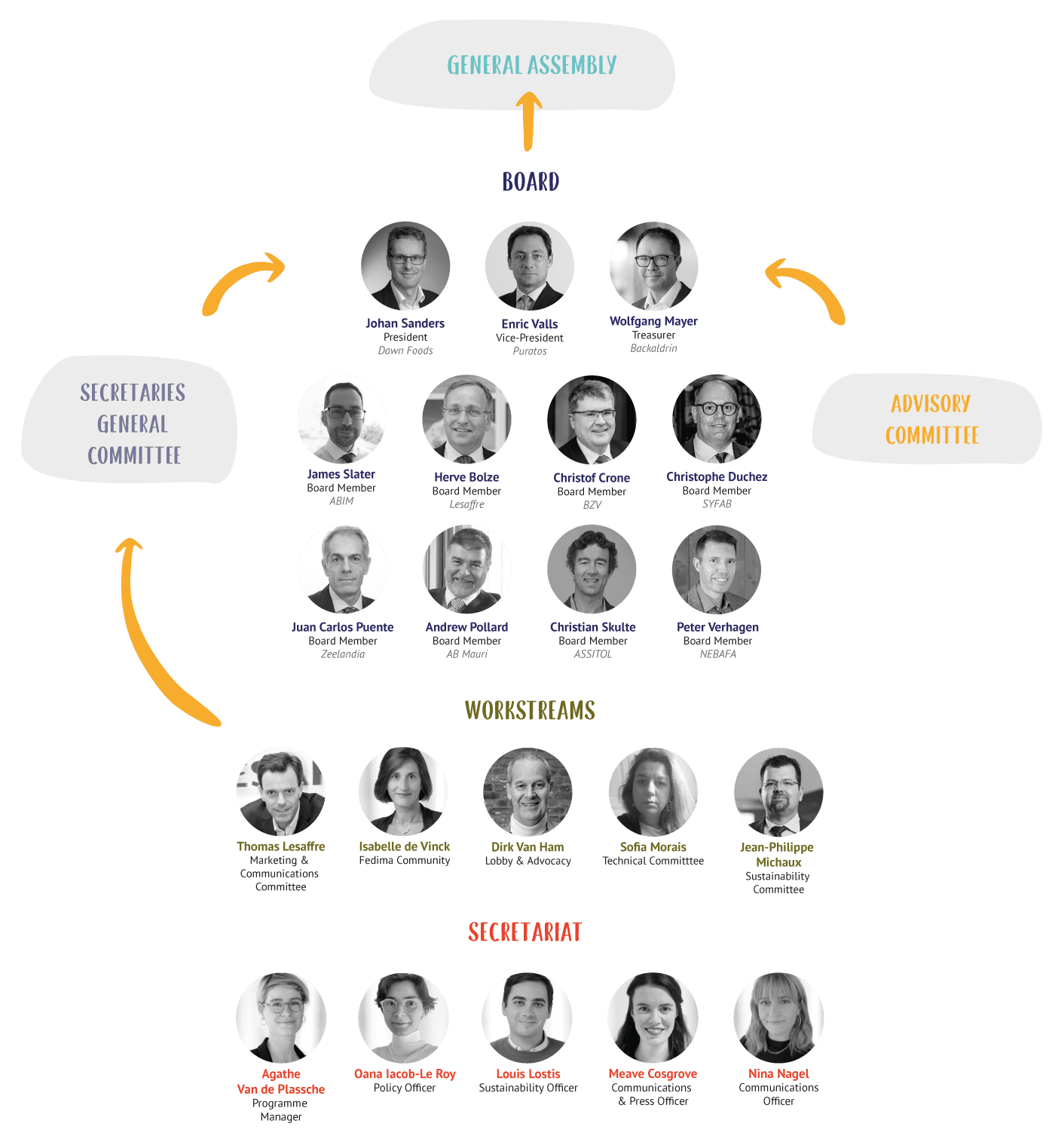

The General Assembly is the highest governing body composed of all 13 National Associations. The General Assembly can bring modifications to Fedima’s Statutes and approve the Association’s annual budget. In addition, it elects a Board of 11 people, including the President.
The Board is the strategic leadership and management body, composed of 10 elected representatives from member associations and companies, elected for a 2-year period and chaired by the President of Fedima. All committees report directly to the Board.
The Secretaries-General Committee acts in an advisory capacity to the Board. It provides a forum for exchange between Fedima and its member associations to develop and implement a coordinated strategy on key issues and exchange best practices.
The Advisory Committee consists of CEOs of companies in the sector, which are, through their subsidiaries, present in at least one-third of Fedima’s National Associations. These companies provide an additional financial contribution to Fedima’s annual budget. The Advisory Committee advises the Board on the establishment of the strategic objectives of the Association.
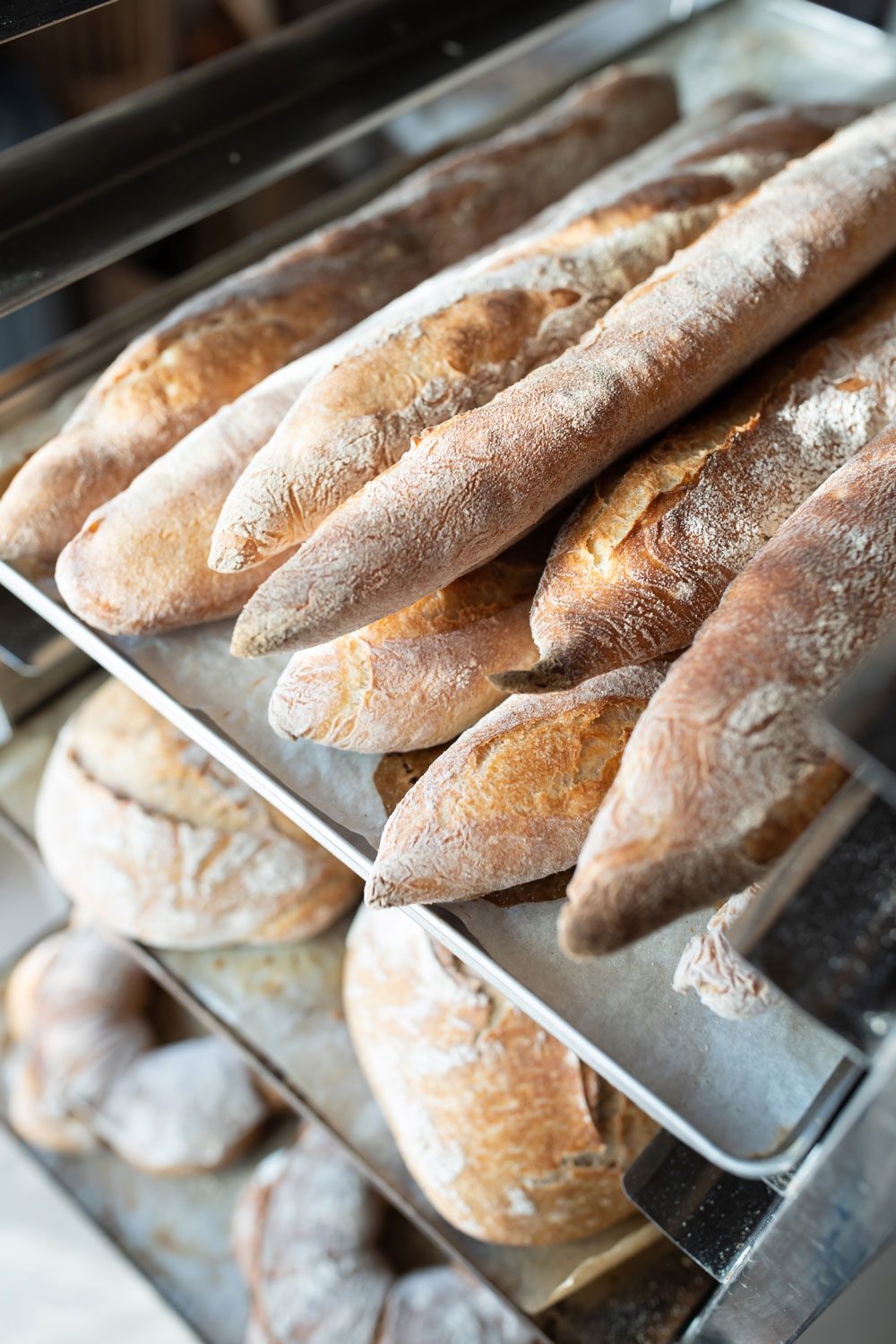



The Taskforce consists of five workstreams, represented by a senior expert and assisted by the Secretariat. Each workstream reports directly to the Board. These five interdisciplinary workstreams work together to drive forward the work of Fedima and expand the Association’s reach and influence both internally and externally.
The Secretariat works hand in hand with the workstream taskforce and is responsible for the technical work as well as the organisation of internal and external meetings. It has a proactive approach to achieving Fedima’s vision, and laying the groundwork for each workstream.


Fedima’s work is guided by an ambitious strategy, mandated by the Board and developed by the Secretariat, to approach the opportunities and challenges the association is currently facing. It is structured around a core taskforce, which aims to strengthen Fedima’s position in the EU political landscape and ensure a sustainable bakery and pastry industry.
The taskforce is composed of:
In a work programme covering 12 months, from January 2022 to December 2022, the Secretariat focuses on building a solid foundation to respond to Fedima’s long-term vision. Every year, the association’s strategy is reviewed and adjusted according to the needs and priorities of Fedima and its members. In fact, it has already been adapted to changing needs brought about by the COVID-19 pandemic and the invasion of Ukraine, and the consequences for the industry.
Ensure a positive regulatory framework that allows the industry to grow
Learn moreEstablish a solid and representative association, streamlining communication with and between the members
Learn moreAlign regulatory and policy approaches to defend the interests of the sector
Learn moreIdentify sustainability concepts and projects to help build a responsible bakery ingredients industry and meet the UN Sustainable Development Goals
Learn moreSupport and grow the bread and pastry market, and communicate the work of the association
Learn moreFrom food quality to labelling, from workers’ safety to consumers’ information, the bakery ingredient sector is constantly impacted by new EU policies and regulations in multiple ways. At Fedima, we want to positively contribute to the achievement of high food safety standards and the protection of our workers, whilst promoting the highest level of transparency towards our customers and towards the end consumers. Throughout the years we have built strategic networks and coalitions to strengthen our advocacy efforts, including food industry federations, ingredients’ trade associations, and ongoing contact with European institutions and media.
In 2015, Fedima and other European trade associations active in the bakery supply chain created a roundtable called the Bread Initiative, to promote the consumption of bread in Europe. Since then, its members have greatly increased their coordination and cooperation, including on broader issues related to the challenges facing the industry. Fedima actively engages in the group together with CEBP, AIBI, COFALEC, and EFM and carries out joint actions with them to address common challenges across the bread value chain. For example, a joint letter on the consequences of the war in Ukraine for the bakery industry was recently drafted and sent to the European Commission on behalf of the Bread Initiative. Fedima and the Bread Initiative also sent a communication to the European Commission on the EU Food School Scheme and submitted a contribution to the public consultation.
Fedima is now a registered stakeholder for the European Food Safety Agency (EFSA). As such, we have the opportunity to contribute towards their activities by being invited to participate in EFSA’s bodies, networks, or thematic discussion groups relevant to the Association’s work.
During the past year, Fedima pursued its collaboration with AMFEP as part of the AFES working group. The group notably finalised the translation and voice-over of its Webinar on the safe handling of enzymes, available in English, Turkish, French, Spanish, German and Romanian on Fedima's website.
The Secretariat and the Chair of the Contaminants Expert Group took part in the Commission’s Stakeholder Forum on Acrylamide and 3-MCPD & GE on February 23 and 24 2022. Actors of the food sector showed a united front regarding the setting of Maximum levels for acrylamide and 3-MCPDE and GE. Building on anticipated coordination with associations such as FoodDrinkEurope, FEDIOL, and AIBI, the sector voiced its concerns and challenges relating to the matter such as the dual setting of MLS, lack of validated analytical methods and the need for formal impact assessment.
In 2021 and 2022, Fedima continued its efforts to tackle the ongoing ethylene oxide contamination crisis, by initiating and hosting regular exchanges with partners associations such as FoodDrinkEurope, AIBI, and EUSFI to coordinate on latest developments and joint actions, such as letters to the European Commission and Member States Experts.
The cross-committee taskforce on front-of-pack nutrition labelling and nutrient profiles also pursued its work to align on Fedima’s interests and develop its position on Nutrient profiles ahead of the start of the legislative process on the revision of the Food Information to Consumers regulation.
A taskforce on the processing aid status of enzymes was created with the aim to develop an information paper and provide the bakery industry and customers with appropriate guidance on the status of enzymes and their corresponding labelling.
Fedima initiated internal discussions with its enzymes experts on potential actions to be taken jointly with AMFEP in the context of the EU Green Deal and Chemical Strategy for Sustainability, with the aim to safeguard enzymes’ usage, including in the bakery sector.
Fedima contributed to the targeted stakeholder consultation on the setting of MLs for maximum levels (MLs) for ochratoxin A (OTA), deoxynivalenol (DON) and hydrocyanic acid (HCN) in certain foodstuffs, via FoodDrinkEurope.
Fedima provided input on Additives call for data on data collection on E472 a, b, c, d, e, f the European Commission and EFSA to ensure that usage levels reflect the situation on the ground.
Fedima participated in the European Commission’s consultation and targeted survey on the revision of the Food Information to Consumers Regulation and more particularly on front-of-pack-nutrition labelling and nutrient profiles.
ensuring the European Commission takes appropriate actions to address the issues that impact our industry as a direct and indirect consequence of the Ukraine-Russia conflict
ensuring a positive regulatory framework which allows acceptable levels of contaminants and reasonable deadlines for implementation
ensuring a positive regulatory framework on labelling with specific outcomes on Front of Pack Nutrition Labelling and Nutrient Profiles
The Russian large-scale invasion of Ukraine on 24 February triggered an immediate humanitarian crisis and sank the global food supply chain into uncertainty, as both countries are major exporters of wheat, cereals, and vegetable oils. The ongoing conflict as well as the economic and trade sanctions are having a major impact on food security, with global food prices skyrocketing and an ongoing disruption of the food supply chain.
What is Fedima doing to mitigate the impact?
Regular updates and insights: We have been closely monitoring the latest measures and their impact on the industry and regularly share this information with our members. We also provide clarity about the different approaches taken at Member State level.
Close coordination and cooperation with FoodDrinkEurope: Since the very beginning of the crisis, we have worked in cooperation with FoodDrinkEurope to share intelligence between members and national associations on the ground and FoodDrinkEurope. We have also coordinated with FoodDrinkEurope to bring members' concerns to the European Commission and have supported their calls for a more flexible and coordinated approach to food labelling, through harmonisation at the European level or mutual recognition.
Joint letter to the European Commission: As members of the Bread Initiative, we have joined forces across the bread value chain to call for action at EU level and drafted a joint letter to the European Commission on the consequences of the situation in Ukraine for the bakery industry. It addresses the strain on the bread supply chain due to a wide range of cost increases, particularly the current challenges in relation to agricultural commodity supply, energy costs, fertilisers, labelling, packing, or transport, which have hit the bread value chain severely at all levels. This letter has been shared with the European Commission and will then be shared with relevant members of the European Parliament.
In times of unforeseen challenges and difficulties, Fedima focuses on its role of safeguarding its members’ needs and ensuring continuity in its work to preserve the interests of the sector.
The Fedima Community comprises 13 members, national associations representing the bakery ingredients industry across Europe. Isabelle De Vinck, Fedima’s Association Manager, coordinates the Community, which serves as a forum for National Associations to share perspectives on the actions worked towards by the committees. This allows for the creation of a consistent and aligned approach to policy issues and strategy building, which considers the needs of the diverse national realities of our members.
The strength of an association lies in the sense of community and collaboration between its members. When building relationships could not occur in person, the Secretariat focused on finding other ways for our members to meet, interact, and share views and perspectives. Fedima strives for open and regular communication between the Association itself and its members by regularly engaging with the Secretaries General of our members, with the CEOs of the member companies of our Advisory Committee, and member companies of our national associations.
Every year Fedima collects data about its membership to showcase the total market share that it accounts for across Europe. This type of data collection is beneficial for both the National Associations and Fedima, to accurately depict the considerably large size of our European Association when engaging with politicians and stakeholders.
At the 2021 General Assembly, the Board decided to start a process of reflection on the governance of Fedima. A Taskforce of Board members was set up to present proposals to simplify Fedima’s Statutes, make the Board election more transparent and open, as well as balance the representation within Fedima’s Community while strengthening the role of national associations. Internal consultations are still underway with key members.
Regular ad-hoc exchanges with the Secretariats of national associations
Attendance of various internal meetings of national associations
November 2021 – CEO roundtable on Raw materials: shortages and responsible sourcing
January 2022 – Secretaries-General of Fedima’s National Associations joined a meeting with the Sustainability Committee
April 2022 – Secretaries-General of Fedima’s National Associations joined a meeting with the Technical Committee
May 2022 – CEO roundtable on Supply Chain Resilience in Crises Time
June 2022 – Secretaries-General of Fedima’s National Associations joined a meeting with the Marketing and Communications Committee
June & July 2022 – The Fedima Secretariat held an engagement round with the Secretaries-General of our members to discuss their needs and how Fedima can continue to support them in their activities
The Technical Committee (TC), led by its Chair, Sofia Morais, follows policy and regulatory developments in the areas of food safety, labelling, and workers’ safety. Its main aim is to provide a platform for members to exchange on their local realities and EU-level discussions, as well as to share information and best practices on relevant topics. It also provides an important forum for talking about difficulties in the industry and finding solutions collectively. In fact, Fedima’s TC established an Incident Management Group to coordinate efficient and appropriate action on product safety concerns when needed.
The TC is organised into 5 expert groups (EGs), each providing expertise on a specific topic:
Within the TC, ad-hoc taskforces are created with the objective of working on targeted topics and projects. The CLP Taskforce, for example, was created following the revision of the CLP Regulation in order to update Fedima’s position papers on its consequences and impact. More recently, an Enzymes Status Taskforce was also created to develop an information paper on the processing aid status of enzymes and provide the bakery industry and customers with appropriate guidance on the status of enzymes and their corresponding labelling. Additionally, a Wholegrain Taskforce was set up and produced an internal paper on “Understanding Wholegrain”, which laid the building blocks for Fedima’s #WholegrainExplained social media campaign, coordinated by the Marketing & Communications Committee.
Cross-committee cooperation is essential on certain topics for which the scope goes beyond the remit of each individual Committee. For this reason, the Technical Committee also launched the creation of a cross-committee taskforce on front-of-pack nutrition labelling and nutrient profiles, with the aim of outlining Fedima’s position in the context of the upcoming legislative process on the revision of the FIC regulation, foreseen within the frame of the EU Farm to Fork strategy.
Finally, Fedima is also part of two joint working groups: the AFES working group with the Association of Manufacturers and Formulators of Enzyme Products (AMFEP) and the AFA working group on labelling and reputation of enzymes with AIBI and AMFEP.
The difficulty to classify and define sourdoughs – due to its inherent use as a leavening agent and/or as an ingredient – combined with a lack of harmonisation on sourdough definitions across the EU, raised the necessity to establish a common understanding on the forms and uses of sourdoughs. From the years 2014 to 2022, Fedima members have thus engaged in activities and discussions aimed at building a common approach to apprehend sourdough.
These joint efforts have led to the publication by Fedima on February 1st, 2022 of a Position Paper named Understanding Sourdough. While recognising the existence of national regulations and local codes of practices, this paper provides a common baseline approach towards sourdough and its related aspects such as its types , ways of production and labelling, with the notable aim of providing consumers and other stakeholders with more transparent information while protecting the integrity of the term sourdough. In order to share this common understanding with other actors and reach a broad alignment around a common baseline on sourdough across sectors, Fedima had the honour to be invited to speak and present the paper at the 8th International Sourdough Symposium organised in Bolzano from 14 to 17 June 2022, and share its call for action with the audience.
The event was a great success and an excellent opportunity to share the fruits of our work. The presentation generated a very interesting discussion among the participants and many showed interest in the call to action that was disseminated through the presentation. We received a lot of positive feedback from the symposium participants and it was great to represent Fedima in person at an external event once again. We will now continue the campaign and contact other potential partners with the aim of getting other stakeholders on board of this Fedima initiative.
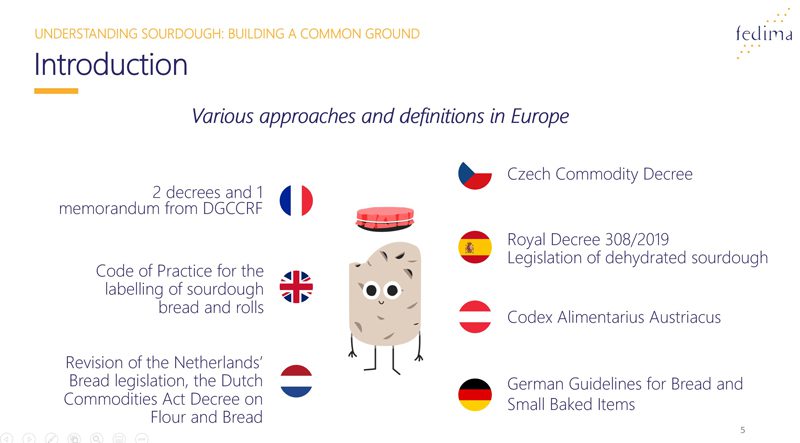

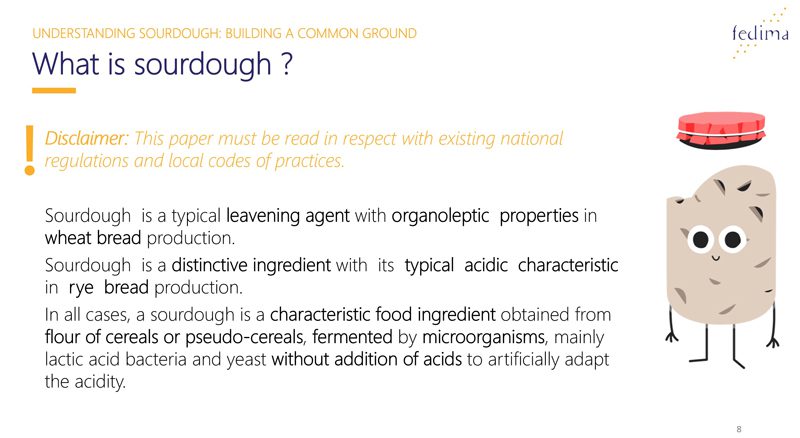

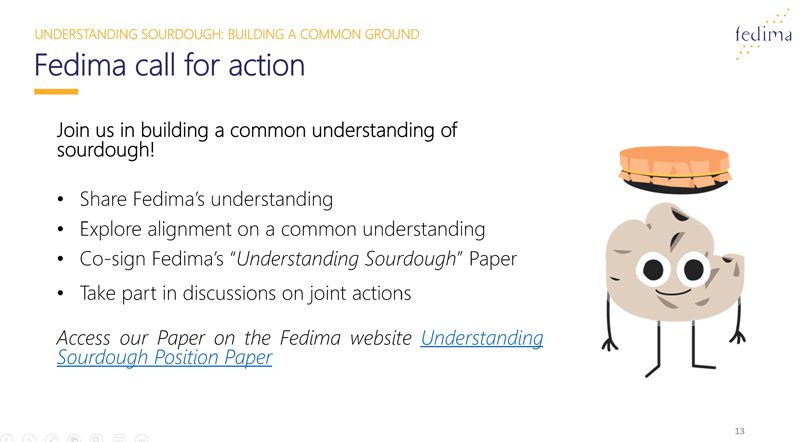

The Technical Committee is committed to following policy and regulatory developments in the fields of food safety, labelling, and workers safety. To do so, it is organised into expert groups which meet regularly and cover a wide range of topics related to additives, contaminants, labelling, enzymes, sourdough, wholegrain, and CLP. This structure allows members to share their expertise on specific topics while providing them with thematic forums to reflect on and discuss current and future developments.
Striving to provide its members with a deeper understanding of key issues, the Technical Committee regularly develops internal documents and organises training sessions for the members. An internal paper on Functional Ingredients, for example, was recently developed to provide members with internal guidance on the understanding of the use of functional ingredients with Fedima’s recommendation on aspects to consider when evaluating the regulatory status of those ingredients. Following the difficulties encountered with the revision of the CLP Regulation and the Poison Centre Notification, the Technical Committee also revised its guidance on CLP, organised a CLP training session dedicated to the PCN in coordination with AtoutChimie, and produced an internal paper on sourdough and its classification under CLP regulation. Moreover it will create a guide on the realisation of a PCN.
Drawing on the expertise of its members, the Technical Committee also develops external documents on topics of interest to members and the wider industry. The aim of these papers is to share Fedima's position and recommendations externally through position papers shared with key stakeholders. As a result, the members of the Technical Committee recently drafted a position paper on Nutrient Profiles, outlining Fedima's position ahead of the legislative process on the revision of the FIC Regulation. The members of the Sourdough EG also drafted an external paper entitled ‘Understanding sourdough’, which was presented during the 8th International Sourdough Symposium in Bolzano in June 2022.
Cooperation with other associations is another key aspect of the Technical Committee's activities. Fedima regularly works with other associations in the sector such as AIBI and CAOBISCO but also with the wider agri-food industry, such as food supplements, food additives, or colouring foods organisations, on more transversal topics. In December 2021, for example, a meeting was organised with NATCOL so that they could present their Code of Practice on Colouring Foods to our members. More recently, SYNPA also participated in one of our expert group meetings to discuss the regulatory status of ingredients with multiple functions.
In addition to this, Fedima is also a member of FoodDrinkEurope, representing the food and drink industry, and the Bread Initiative (AIBI, CEBP, COFALEC, European Flour Millers and Fedima) representing the bread value chain. The Technical Committee shares information with these two organisations on a daily basis. It also exchanges and coordinates for joint actions on common issues and positions regularly. For example, a joint letter on the consequences of the war in Ukraine for the bakery industry was recently drafted and sent to the European Commission on behalf of the Bread Initiative.
Furthermore, Fedima is part of the Contaminants Joint Exchange, a forum of regular exchange with the primary focus on ETO. Other members include FoodDrinkEurope, AIBI, Food Supplements Europe, EU Specialty Food Ingredients, European Federation of Associations of Health Product Manufacturers (EHPM), European Spice Association, COCERAL, and EuroGlaces.
Involved in discussions at EU-level, the Technical Committee is also regularly invited to exchange and cooperate with the European institutions on technical subjects. As a result, the Technical Committee is regularly called upon to participate in stakeholder forums, such as the acrylamide, glycidyl esters and 3-MCPD esters stakeholder forum, as well as to contribute to EFSA data collections (Fedima is now a registered stakeholder for EFSA). On the other hand, representatives of the European Commission are also regularly invited to participate to Technical Committee meetings in order to present the recent developments on certain topics.
The Sustainability Committee (SC), created in 2020 after a decision made by the General Assembly in 2019, reflects the bakery sector’s commitment to sustainable development. It is composed of representatives of the Advisory Committee’s companies as well as National Associations. It is chaired by Jean-Philippe Michaux.
The main aim of the SC is to serve as a platform for exchanging ideas and best practices on sustainability, as well as evaluating and monitoring the actions and commitments undertaken by the sector. The Committee focuses on 6 main priorities (building blocks):
Sustainability is a horizontal and cross-cutting issue. Since it first gathered in January 2020, the Committee has been working alongside other Fedima workstreams, national associations, as well as European actors such as FoodDrinkEurope. The SC has also been collaborating or exchanging with CAOBISCO, FairTrade International, the Roundtable on Sustainable Palm Oil (RSPO), and the Rainforest Alliance.
Sustainability Data Collection: In 2021, nine companies from the sector participated in a data collection about sustainability. Its purpose is to gain better insights into the sustainable development of the industry and apply a benchmark allowing companies to compare and apply best practices. A detailed report, containing aggregated or anonymised data, has been shared with participating companies and is available on Fedima’s Intranet for members. The exercise was carried out again in 2022, in order to provide comparable data, allowing Fedima to give insights into the evolution of the sustainable development of the sector.
Care for People & Communities: In 2021, 88% of companies in the European bakery ingredients sector declared that they engage in community building activities, contributing to support and sustainably grow the bakery sector and local communities. Reflecting on this positive data, the Committee presented to the Board a proposal for Fedima to play a role in supporting the sustainable development and innovation of the bakery sector and local communities: a bi-yearly Fedima Grant grant rewarding a local sustainability initiative in the bakery sector. The bi-yearly grant will be funded by voluntary companies within the sector and awarded by the Sustainability Committee.
Packaging Expert Taskforce: Created in Spring 2021, this Taskforce gathers experts in packaging to pull resources in order to foster change in the industry, with suppliers and with decision-makers, to improve recyclability of packaging in a circular economy model. See their actions in the highlight below.
Participation in policy-making discussions around the EU Farm to Fork Strategy: Stakeholder consultation on the Framework for a Sustainable Food System and Fedima position paper on nutrient profiles.
Regular exchanges with key stakeholders (European Commission, FDE, FairTrade International) on cross-cutting sector-wide issues.
The Packaging Expert Taskforce adopted a Vision Paper in late 2021 to achieve sustainable packaging in the bakery sector by 2025. For the first time, Fedima is taking concrete steps toward a common sustainability ambition in the industry, by calling for:
100% recyclable plastic buckets and paper bags, according to international guidelines
The recognition of only those packaging suppliers that are actively engaged in sustainable packaging solutions
EU harmonisation of recyclability labelling, disposal processes and waste collection
Read the full paper on our website.
Building on this common ambition, the Taskforce shared, during an internal webinar in June, an Action Plan to help Fedima members engage with:
Packaging suppliers: a Memo to suppliers, setting out the ambition of the sector and our asks, was shared with members. The Memo and our Vision Paper can help all Fedima members in their discussions with suppliers: the sector is united, bring us the solutions!
Customers: the common ambition helps individual companies to indicate that sustainable packaging is taken seriously by the entire sector, which has an objective for 2025.
The Packaging Expert Taskforce encouraged all members to leverage this common ambition as much as possible and to use these documents and this approach to ask packaging suppliers to find sustainable solutions suited to our sector. The Taskforce will continue this project by engaging with packaging suppliers as well.
The Marketing and Communications Committee (MCC), led by its Chair Thomas Lesaffre and supported by the Secretariat, ensures that Fedima’s ongoing work and activities are communicated both internally among members and externally to policymakers, stakeholders, and industry players.
The Committee’s main aim is to promote the sector through Fedima’s channels, support the bread and pastry market, improve end-consumers’ perception of the industry and its end products, and establish the association’s place as a reliable and essential player on the European bakery scene.
Over the past year, the MCC has focused on providing valuable market insights and launching new research projects, sharing light-hearted yet informative content with its members and external audiences, and building new partnerships while consolidating existing ones. Furthermore, the Committee executes communication campaigns across several platforms, leveraging the policy work undertaken by other workstreams and gathering new data.
In November 2021, the Committee launched #WholegrainExplained, a communication campaign on Fedima's LinkedIn and YouTube accounts over a six weeks period. The aim was to provide information about wholegrain and stimulate discussions on the topic. It builds on the “Understanding Wholegrain” paper, an internal information paper drafted by Fedima’s Technical Committee providing Fedima members with a common baseline understanding of wholegrain while acknowledging different legal definitions across Europe. The MCC focused on making this campaign accessible to the local realities of Fedima members and thus translated the material into all languages spoken across the membership. In December 2021, Fedima circulated an internal report giving an overview of the campaign and summarising its key results, from accomplished media placements to the successful engagement of national associations with the translated content.
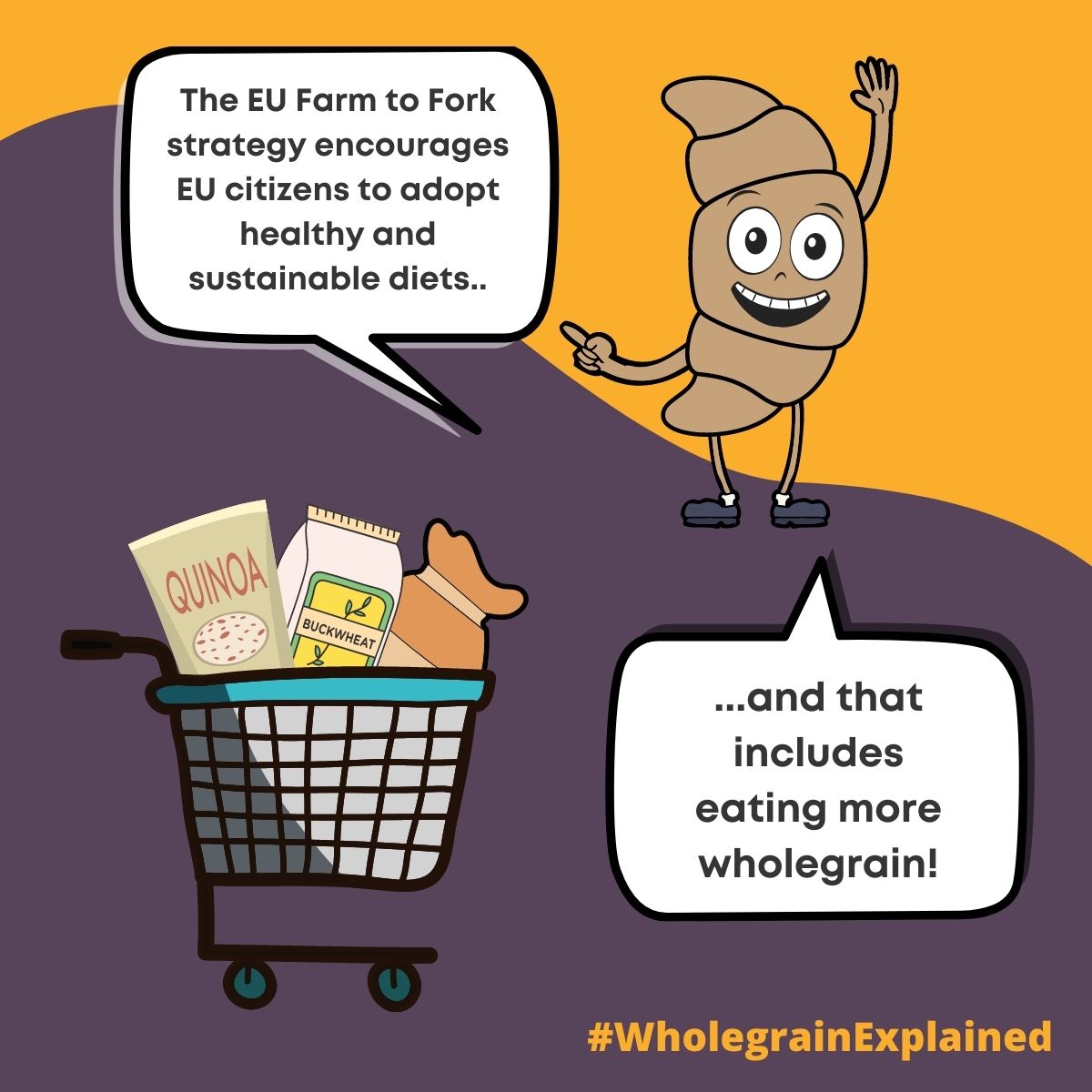



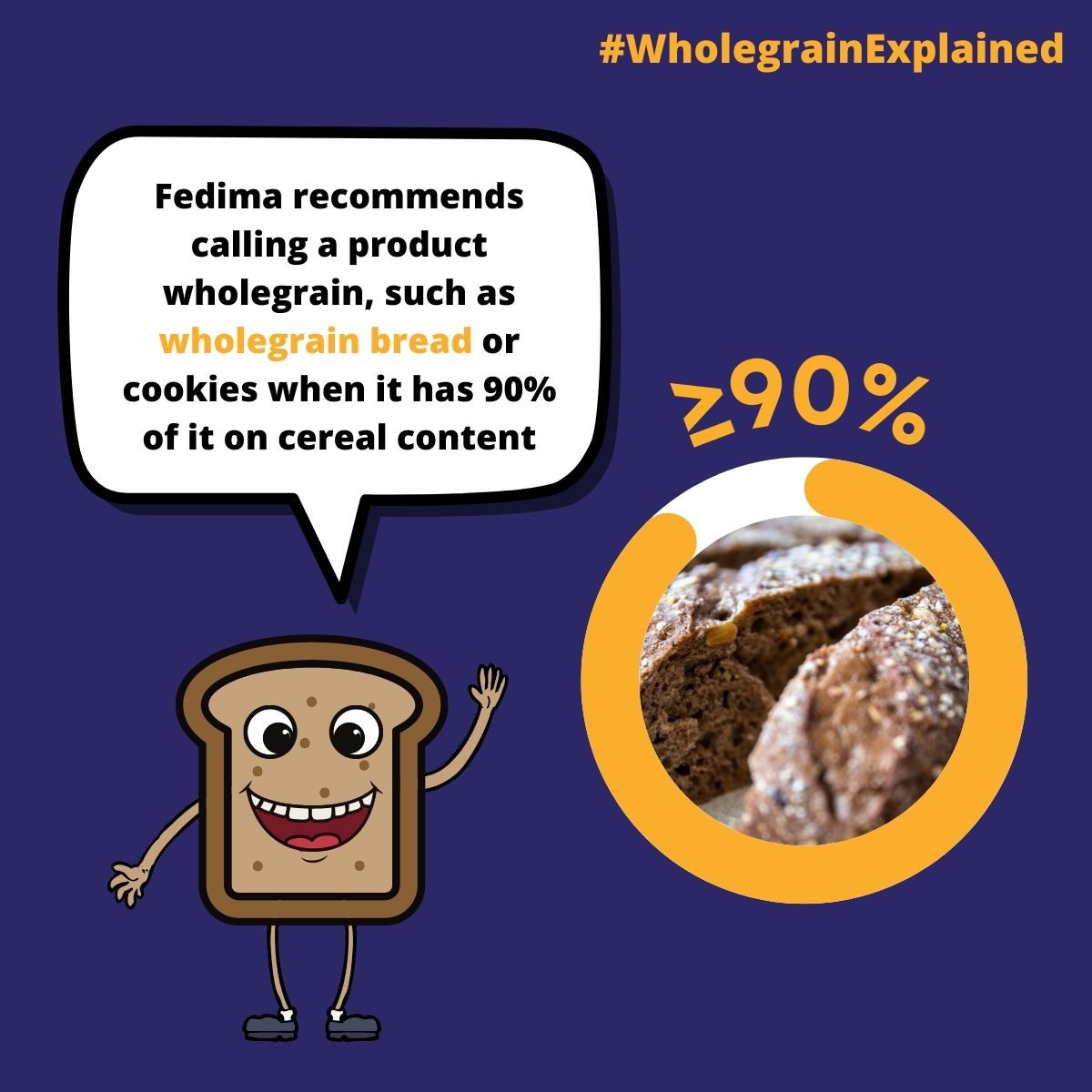

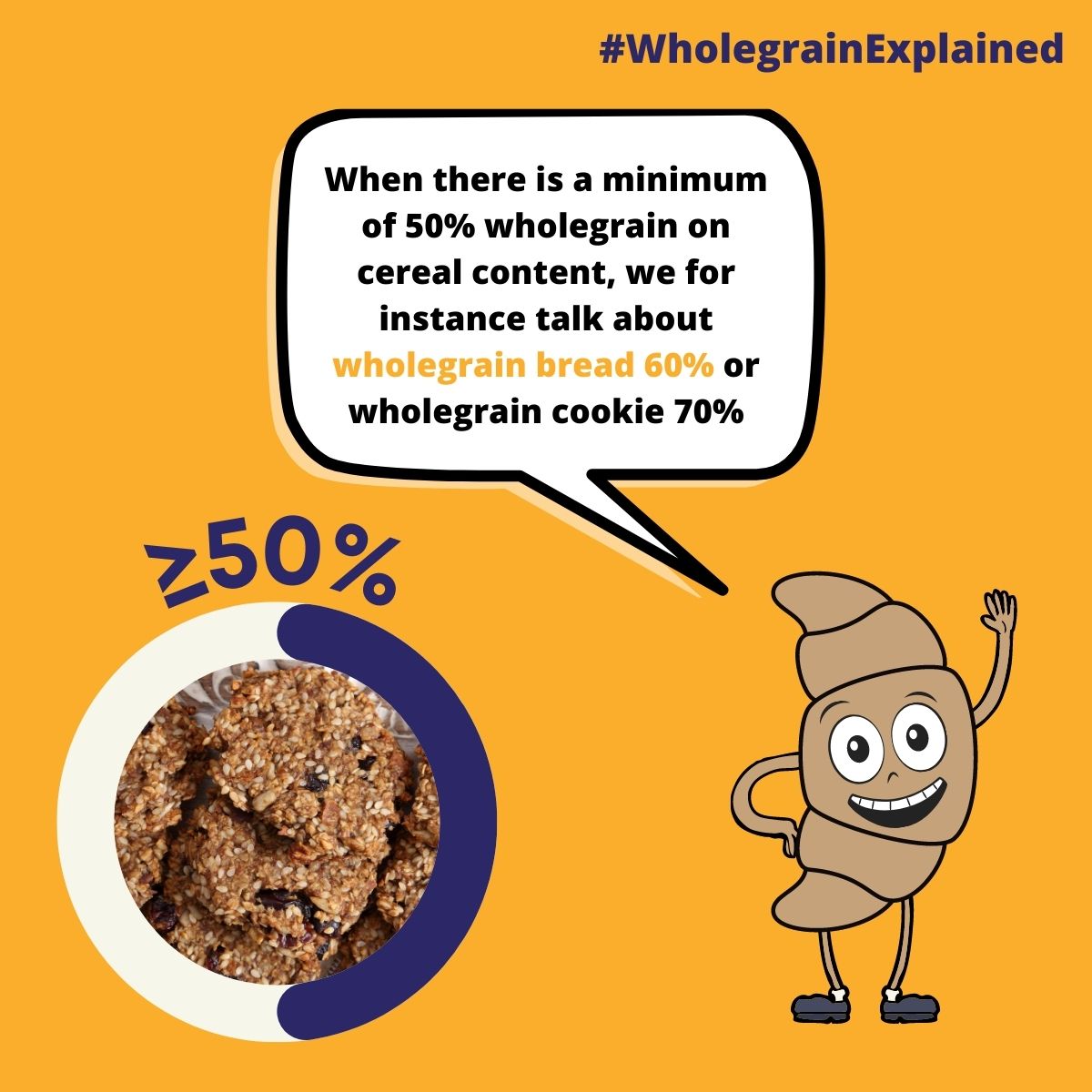

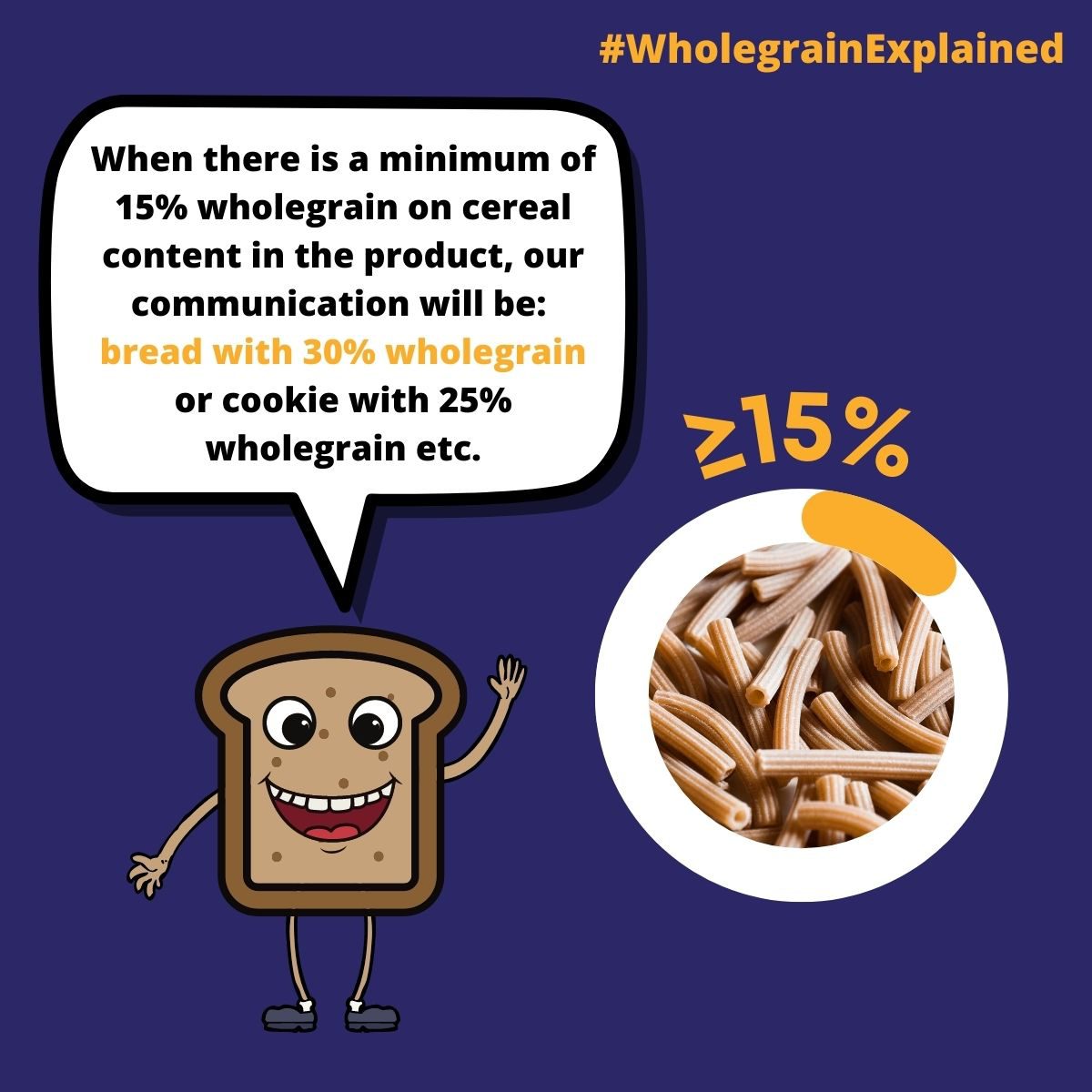

Fedima regularly gathers data from its members to quantify the market size that it represents and assess the importance of specific products such as bread, pastry or specific ingredients such as yeast and sourdough. This information gives the Association sharp insights into the market trends and helps ground communications and policy outreach efforts with reliable data. Fedima commissioned a study into consumer behaviour towards pastry, divided into a qualitative and a quantitative part. The qualitative part of this research was conducted in France, Germany, and the UK by the marketing research agency Kirona in October 2021. Fedima plans to launch the second part of the research that will focus on quantitative data in the coming year.
Members received a high-level summary providing an insight into the initial findings of the qualitative research, which explores the key motivators and barriers that drive consumers when choosing the following subcategories: viennese pastries, cakes, and fine pastries in France, Germany, and the UK. These three European countries present a large consumer market with varying traditions and habits in terms of pastries. Through a series of online immersion tools and focus groups, we captured much data, and several elements stood out as unique insights into pastry consumption habits. These results were presented at our members-only webinar in March 2022 which Fedima and its research partner Kirona jointly organised. The event was a great success, reaching around a hundred attendees.
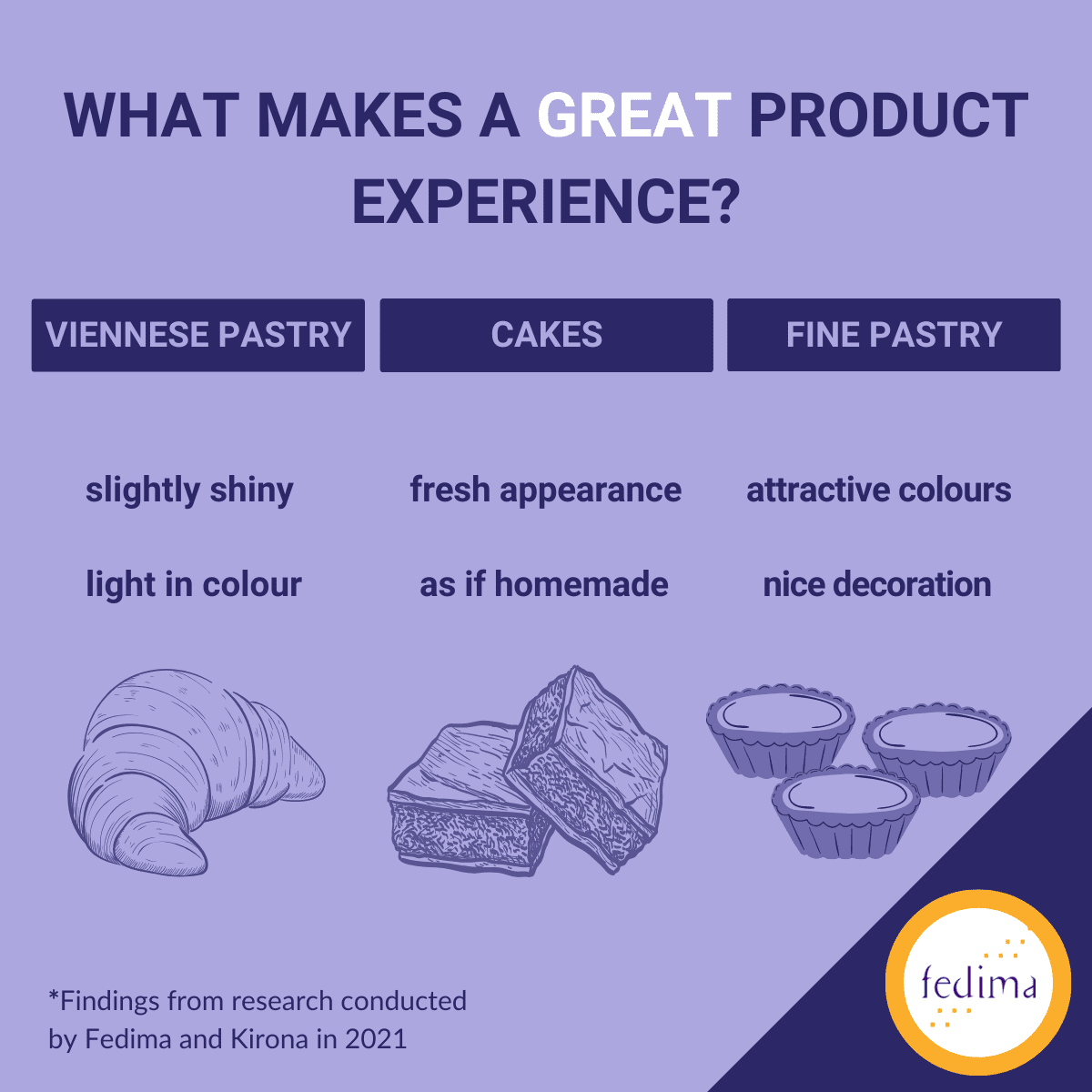

Articles and other material informed by the qualitative research will feature in the 2022 European Bakery Industry Market Report, were shared on Fedima’s LinkedIn account, and were pitched to local and specialised media. This communication outreach will lay the groundwork for a more in-depth campaign based on the quantitative part of the study that will be conducted in 2023.
Following last years’ objective of increasing Fedima’s digital footprint, the Association works to ensure that its message and those of its members come across various external audiences beyond its membership. This has taken the form of regular activity on Fedima’s LinkedIn page, which has seen valuable follower and engagement growth, the launch of the Fedima YouTube account, and a steady presence in relevant media outlets, such as:
Last year Fedima partnered with Media Energy Limited, publishers of the Baking Europe quarterly magazine, to shape the inaugural European Baking Ingredients Market (EBIM) Report 2021, composed of two volumes. Thanks to its success, the collaboration has been extended for three more years. The 2022 EBIM Report will be available in digital format as well as sustainably printed in October 2022. The publication aims to gather the views of relevant leaders in the industry, and will provide valuable and topical insights on the food sector, taking into account the challenges and difficulties it faces.
At the end of October 2021, Fedima participated in Iba.CONNECTING EXPERTS, an event organised by Iba.TRADE FAIR, the world's leading trade fair for the baking and confectionery industry. During this event, our President Johan Sanders presented the webinar "Sustainability in the European Bakery Sector: Leveraging the Power of Associations to make an Impact". You can watch it here: https://connecting-experts.iba.de/de/webinare/video/?uuid=f32ec548-d5eb-4bdf-8f02-a83a5d114516
Fedima’s members-only monthly newsletter ensures that all those represented by the Association are well informed about ongoing activities and important meetings throughout the year. Aiming to strengthen Fedima’s community further, the newsletter also serves as a tool for members to share their news and successes. At the beginning of the year, Fedima’s newsletter underwent a redesign to achieve a more dynamic and harmonised look. During this past year, Fedima implemented several changes in terms of digitalisation, adapting more and more to the needs of this new virtual reality. The fully digital Annual Report, enriched with interactive and engaging elements, is one of the results of this adaptation.
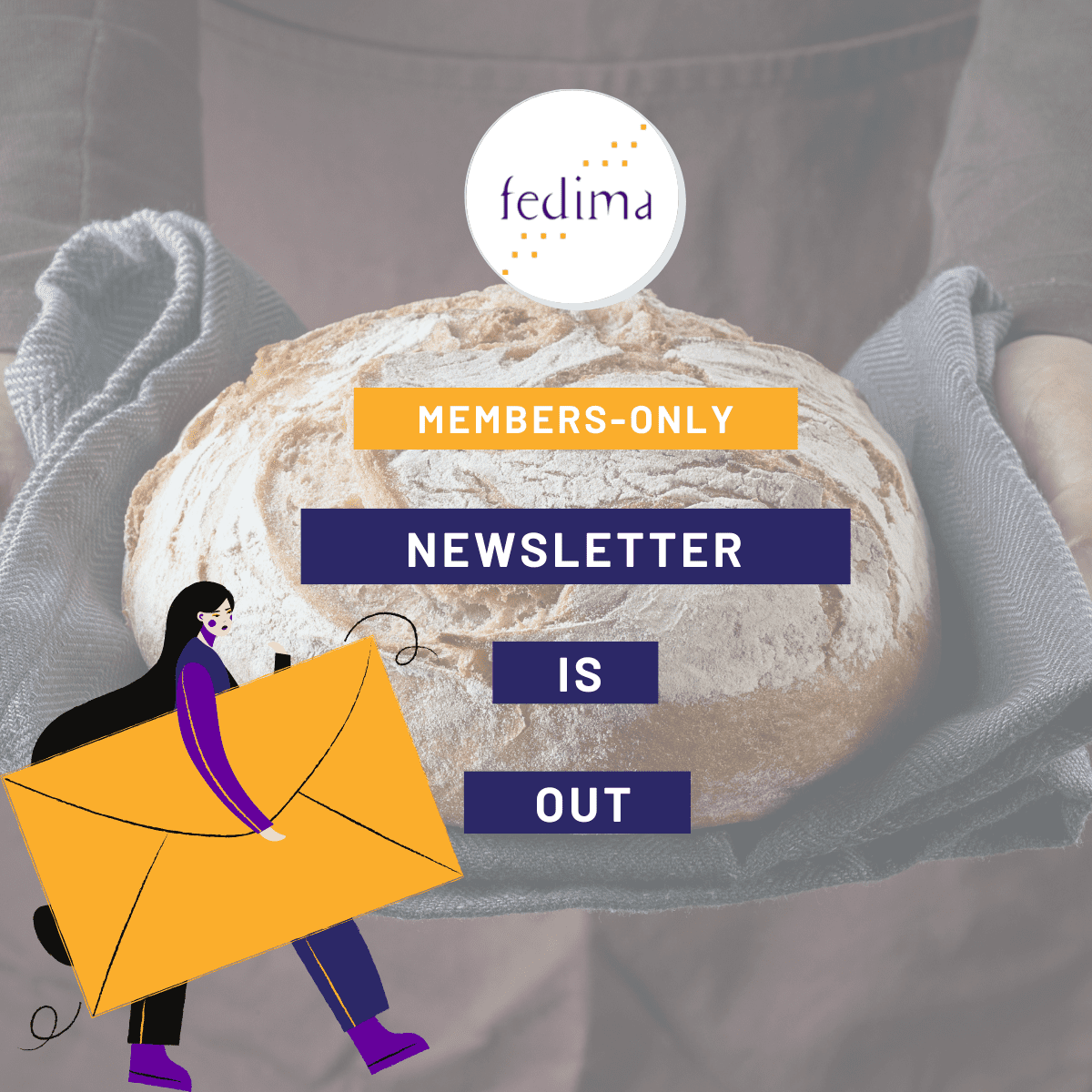

In 2019, the Joint Enzyme Safety Working Group (AFES), composed of Fedima and the Association of Manufacturers and Formulators of Enzyme (AMFEP), developed a series of webinars to present the Guidelines on the Safe Handling of Enzymes in the Bakery Sector. These informative sessions, initially conducted in English, have been translated into Turkish, Romanian, Spanish, German, and French in 2022, to be useful for Fedima’s member associations. With the intent to distribute this resource to a larger audience within the bakery supply chain, the MCC contacted local specialised publications and shared the news on social media. The webinar series is available for download on Fedima’s website.
The companies we represent generate a turnover of over 6 billion EUR per year, hence contributing to the economic development of European countries. Overall, companies represented by our members employ nearly 25,000 people across Europe.
Number of employees of the companies represented by Fedima and the national associations
*2020/2021 data
**2018/2019 data
The type of bakeries represented by our members largely vary between national associations. While our Dutch, Austrian, Belgian and British associations represent over 60% industrial bakeries, the Italian, Greek and Polish association mostly account for artisanal bakeries. The German association represents various types of bakeries, including artisanal and industrial bakeries, which account for 60% of their total membership.
| Fedima | 6.1 |
|---|---|
| BZV | 1.6 |
| GIDABIL | > 1.3 |
| ABIM | < 0.4** |
| SYFAB | 0.3** |
| NEBAFA | 0.4 |
| ARGE | 0.27 |
| UNIFA | 0.2* |
| ANCIPA | > 0.1 |
| ASSITOL | > 0.1* |
| FEDIMA Hellas | > 0.1** |
| FEDIMA Romania | > 0.1 |
| Fedima España | < 0.1* |
| FEDIMA Polska | < 1.1** |
Turnover generated by companies represented by FEDIMA (EUR billion)
*2020/2021 data
**2018/2019 data
Market share by type of bakery (%)
ANCIPA / GIDABIL: N.A.*2018/2019 data
Chair: Sofia MORAIS (Puratos)
There are 5 active Expert Groups (EGs):The joint AMFEP-FEDIMA Expert Group on Enzymes Safety is chaired by Merete SIMONSEN (AMFEP, Novozymes)
The Wholegrain Taskforce is chaired by Sofia MORAIS (Puratos)
The CLP Taskforce is chaired by Carine Chincholle (BZV)
Chair: Thomas LESAFFRE (Lesaffre)
Chair: Jean-Philippe MICHAUX (Puratos)
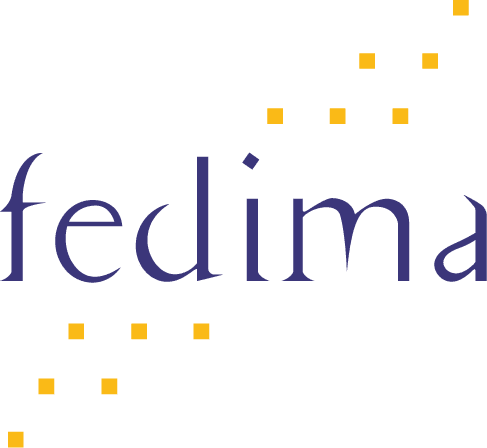

Federation of the European Manufacturers and Suppliers of ingredients to the Bakery, Confectionery and Patisserie Industries ASBL
Rue de la Loi 38, boite 5 - 1000 Brussels, Belgium
Tel.: +32 2 895 43 29 - Email: secretariat@fedima.org
Website: www.fedima.org
EU Transparency register : 904362515084-73
Annual Report 2021 pdf version